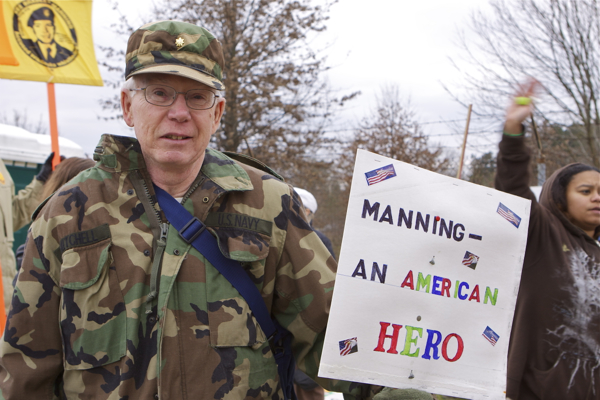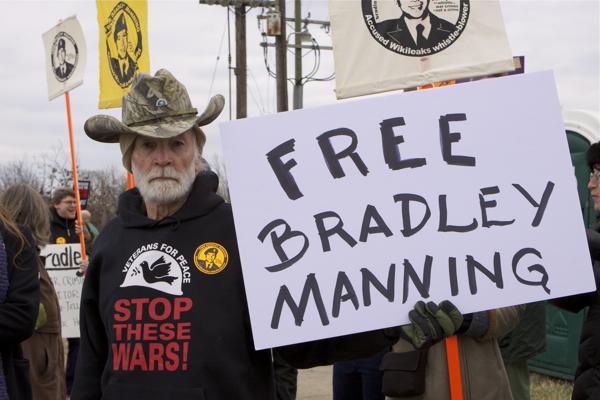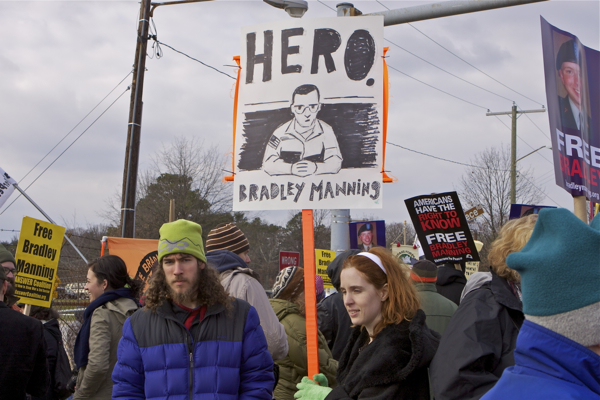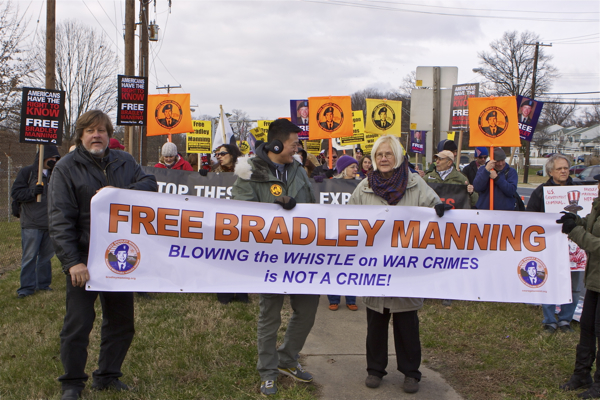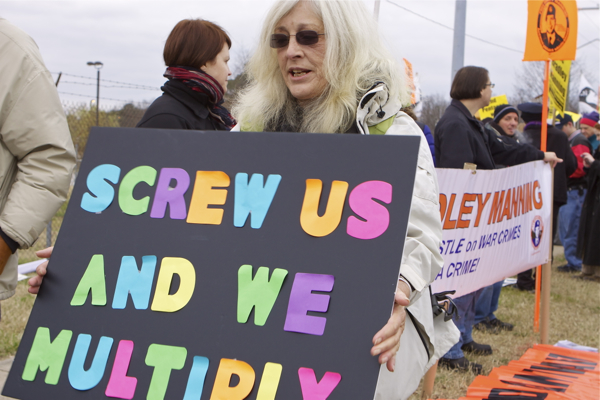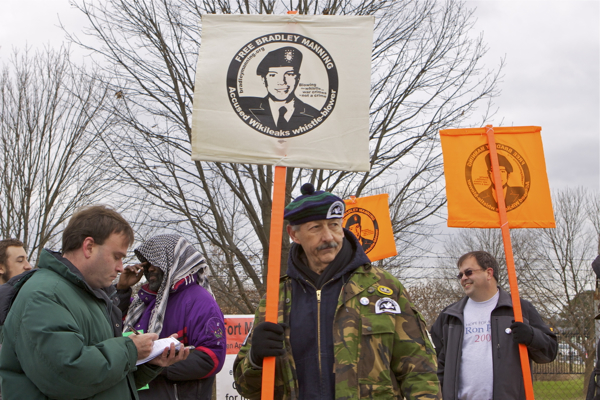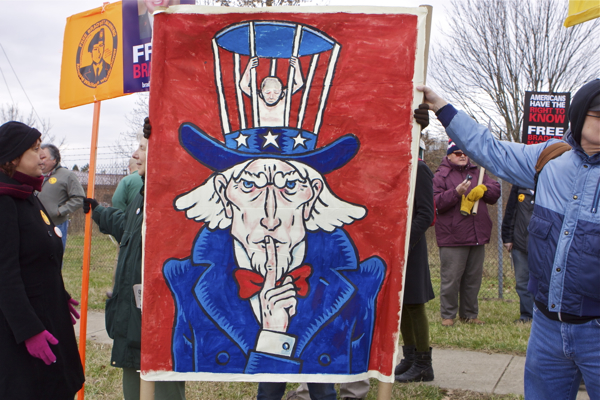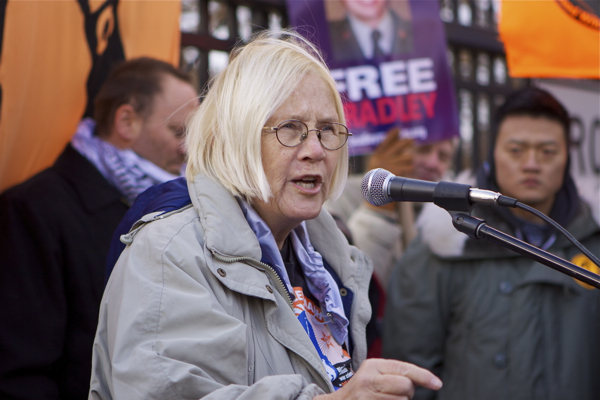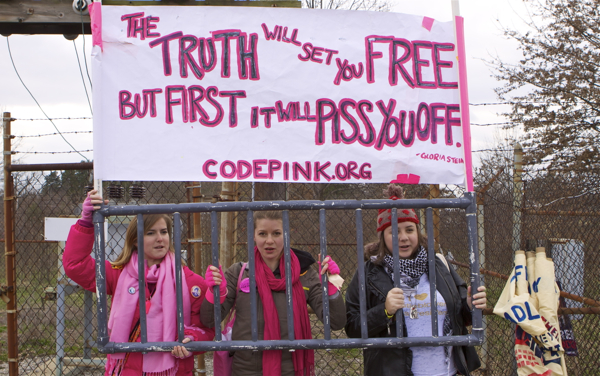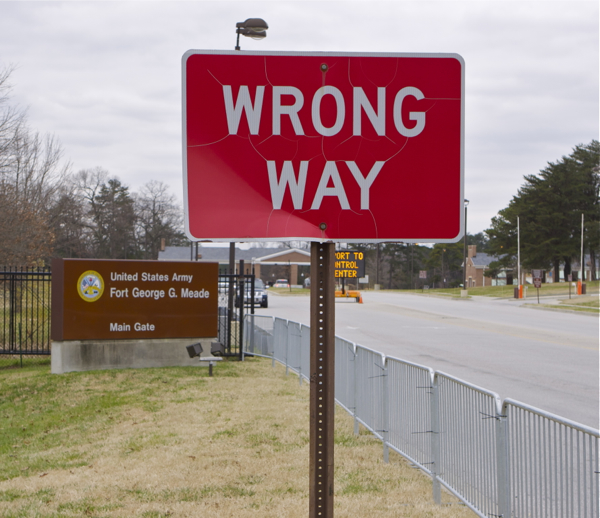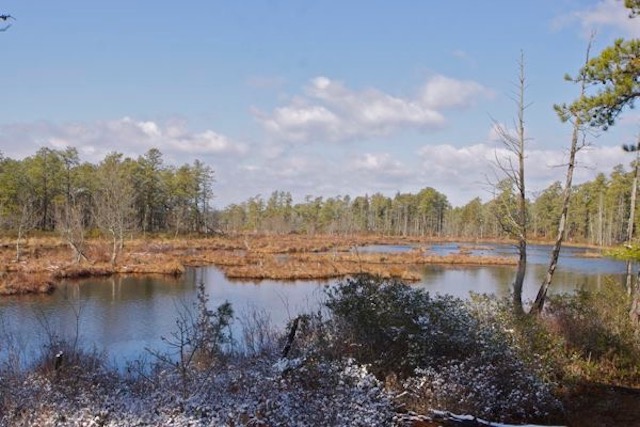
New Jersey’s Pinelands Commission was once a respected, independent steward of a forest that filters the drinking water for millions in the region. But political manipulation has turned it into an ineffective agency that looks the other way when the preserve’s delicate balance is threatened. ~~~ Philadelphia Inquirer editorial: “Christie bullied Pinelands panel to get his way (3/9/16)
[Update: 1/14/17 – Philadelphia Inquirer editorial weighs in again:
Today we do something different, and offer up an alternative – not a “compromise” – that could provide a credible justification for a “go slow” approach, designed to appeal to those Pinelands Commissioners that may even support the pipelines (or perhaps provide cover to support a “no” vote).
I oppose the proposed South Jersey Gas (SJG) and NJ Natural Gas (NJNG) pipelines through the Pinelands National Reserve.
I’ve strongly urged Pinelands Commissioners to deny pending approvals, based on science and public policy and the fact that they violate the Comprehensive Management Plan (CMP). There also are legitimate historical reasons that reflect the original reasons for enactment of the federal law that established the Pinelands and compelling moral arguments, given the climate crisis, i.e. see Pope Francis’ encyclical “Care for Our Common Home”
There have been multiple egregious political and ethical abuses by Governor Christie, the Legislature, County Freeholders, and the Executive Director and Counsel:
“There was a degree of closeness between the applicant and staff that went beyond the neutrality appropriate to a review process,” said [Pinelands Commission Chairman] Lohbauer, a lawyer. ~~~ Philadelphia Inquirer (1/26/15)
There is no need to summarize the ugly tactics here. But I must note that they provide an additional line of evidence supporting denial of approvals, if only to preserve the independence and integrity of the Pinelands Commission.
However, I can count votes and realize that – based on the prior 7-7 tie vote on the SJG MOA – that several Commissioners support the pipelines or are very likely to do so.
This vote will be an ethical gut check for newly appointed Commissioners Bob Barr, Jane Jannarone and Giuseppe (Joe) Chila – and I would not want to be in replacement Commissioner “Zeke” Avery’s shoes.
Two former Commissioners (Jackson & Ficcaglia) that opposed the SJG MOA were replaced.
One current Commissioner (LLoyd) that opposed was forced to recuse for highly dubious conflicts of interest (see NY Times: Fighting a Pipeline, but Feeling and Fearing Christie’s Influence (1/8/14)
The former federal appointee opposed, but his replacement, Frank Hayes of the National Park Service, now serves under the Trump administration.
So today, I’d like to appeal to those Commissioners who either support the pipeline or are undecided and want to make sound decisions based on credible data and objective analysis.
Those Commissioners should not support the pipelines, at a minimum, until the following questions are answered with independent scientific expertise:
1. Obtain independent expertise
The Commission has relied exclusively on data, analysis, and scientific and policy recommendations provided by Executive Director Wittenberg – who was appointed by Gov. Christie – and on regulatory and legal analysis provided by Counselor Roth.
The project review, analysis, findings, and recommendations of the Commission’s scientists that have been provided to the Commission have been shaped, controlled, and filtered by ED Wittenberg. The Commissioners have been provided only what Ms. Wittenberg finds appropriate, which is not necessarily the concerns or dissenting opinions of her scientific staff.
Much of the field data have been collected and analyzed by the applicant, South Jersey Gas. So too, the engineering and alleged energy justification.
There has been no independent verification, or expert analysis and recommendations provided to the Commissioners.
ED Wittenberg’s independence, judgement, and recommendations have been called into question by highly credible sources, including former Governors, major news outlets, the Commission’s own former Chairman Lohbauer, experts, the public, and – most importantly, the Appellate Division.
The Commission can have little confidence in Wittenberg’s recommendations and it is very likely that the Commission has NOT been provided a full and honest assessment by the Commission’s own scientists.
Given this situation – particularly given the history of the debate – the Commission should obtain independent environmental and engineering expertise.
2. Study the impacts of existing pipelines
SJG and NJNG experts argue that the pipelines are necessary and would have very little adverse impacts on the Pinelands resources.
Environmental experts and the public disagree and question the project’s need and magnitude of impacts.
Executive Director Wittenberg advised the Commission, back in July 2013, as follows: (listen to recording @ time 11:26):
I can get up there and tell you that there are places in the Pinelands where we have many, many, many, many, many, many, miles of natural gas pipeline that has been put in – and we can go out and look at what the effects were of those.
The SJG and NJNG pipelines would add to the “many, many, many, many, many, many, miles of natural gas pipeline that has been put in”.
So, if according to SJG and NJNG experts, pipelines have little or no impact, why not conduct a study that inventories and analyzes the impacts of all the “many miles” of existing pipeline and considers the cumulative impacts of the incremental addition of the miles of SJG and NJNG pipelines?
Such as study could assess:
- disturbance, fragmentation, landscape, and effects on forest ecology
- hydrological, water quality, and wetlands impacts
- air quality, public health, climate change, and enery infrastructure impacts
- visual and aesthetic impacts
- leaks and safety (fires, explosions, emergency events)
The Commission should have a solid scientific baseline and independent and objective impact assessment before deciding whether to approve a potentially damaging major regional infrastructure project with a 40+ year design life.
3. Apply the Commission’s ecological science and results of the Kirkwood – Cohansey Study
The unique and irreplaceable water, forest, and ecological resources of the Pinelands deserve protections afforded by the best available science.
The proposed pipelines would disturb existing vegetation and soils, and thereby alter natural drainage and hydrology. Some of the hydrological impacts can be expected to be similar to diverting surface or groundwaters. These changes will impact forests, wetlands, surface and groundwater quality and quantity, and the ecosystems that rely on water.
The Pinelands Commission has conducted extensive scientific research regarding the effects of hydromodification on ecosystems by the diversion of groundwater, i.e The Kirkwood – Cohansey Project:
Scientists from the cooperating agencies and institutions completed a work plan for the Kirkwood Cohansey Project that underwent peer review. The work plan, which was approved by the Commission in October 2003 following a public hearing, addressed two major research questions. First, what are the probable hydrologic effects of groundwater diversions from the Kirkwood-Cohansey aquifer on stream flows and wetland water levels? Second, what are the probable ecological effects of induced stream-flow and groundwater-level changes on aquatic and wetland communities?
Twelve separate studies were completed as part of the Kirkwood-Cohansey Project. The results of some of the studies can be used to estimate the potential impacts of groundwater withdrawals on aquatic and wetland resources in the Pinelands, which can help provide the foundation for developing improved water-supply policies for the Kirkwood-Cohansey aquifer. Below is a brief summary of each study and links to the published reports and/or journal articles.
The Commission should require the pipeline applicant to conduct an assessment of impacts and risks, applying the scientific framework and methodology of the Kirkwood – Cohansey Project (KCP).
The KCP provides the scientific benchmark and sets a high standard for scientifically assessing ecological impacts of projects that create hydrological modifications.
Before any vote to approve these pipelines, the Commission should fully understand the impacts and risks, using the best available science. That burden has not been met by the current application, therefore the Commission should not vote to approve it until the scientific burden is met.
4. Conduct Required Antidegradation Review and Water Quality Studies
The Pinelands water resources are provided the highest level of protection under the Clean Water Act via federally enforceable NJ surface water quality standards. This is known as a “non-degradation” policy. NJAC 7: 9B-1.5(d) provides: (bold mine):
Antidegradation policies applicable to a waterbody are as follows:
i. The quality of nondegradation waters shall be maintained in their natural state (set aside for posterity) and shall not be subject to any manmade wastewater discharges. The Department shall not approve any activity which, alone or in combination with any other activities, might cause changes, other than toward natural water quality, in the existing surface water quality characteristics.
ii. For Pinelands waters, the Department shall not approve any activity which alone or in combination with any other activities, might cause changes, other than toward natural water quality, in the existing surface water quality characteristics. This policy shall apply as follows:
(1) This policy is not intended to interfere with water control in the operation of cranberry bogs or blueberry production.
(2) New or expanded discharges are not allowed, unless authorized by the Pinelands Commission in accordance with Pinelands Comprehensive Management Plan, N.J.A.C. 7:50-4.61 through 4.70.
The construction and operation of the SJG pipeline will impact “Pinelands waters”, but SJG has not conducted any “water quality study” to characterize existing natural water quality or “antidegradation review” to determine the magnitude of these impacts or whether they would comply with the strict “non-degradation” policy established under the Clean Water Act.
In order to address these deficiencies, prior to considering whether to vote to approve the proposed pipelines, the Commission should require the applicants SJG and NJNG to conduct the following analysis:
- characterize “existing water quality” and “natural water quality”(via a minimum of 4 quarters of statistically representative physical, chemical and biological data)
- conduct an “antidegradation review” to determine water quality impacts, including cumulative impacts, of pipeline construction and operation
- conduct a risk assessment of potential pipeline construction and operation accidents
A Commissioner owes a duty to make decisions based on the best available science – in its current form, the proposed projects do not meet that standard.
If you are going to vote in favor of these pipelines, please do so based on science, not politics.

 Manning also is accused of downloading and providing more than 200,000 other secret documents on the Iraq and Afghanistan wars and State Department diplomatic cables to Wikileaks.
Manning also is accused of downloading and providing more than 200,000 other secret documents on the Iraq and Afghanistan wars and State Department diplomatic cables to Wikileaks.